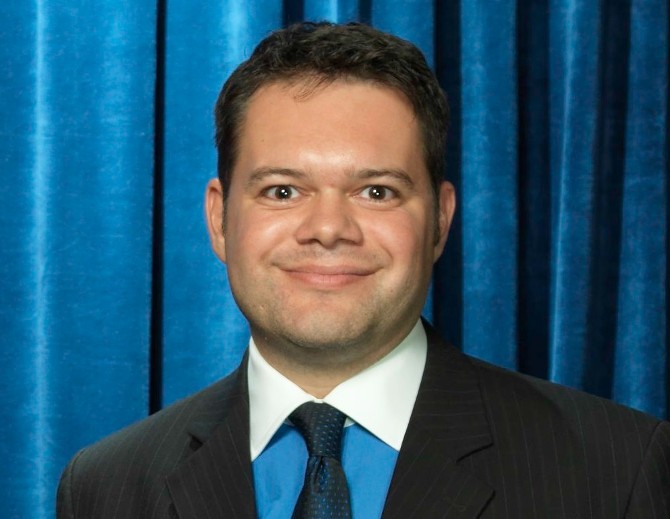The role of IR at Brazilian companies has changed significantly over the past few decades. When the Instituto Brasileiro de Relações com Investidores (IBRI), Brazil’s IR society, was founded in 1997, the IR function was a newly established role within companies, says Rodrigo Maia, global consultant at IBRI.
As an IRO with 18 years of experience, Maia tells IR Magazine that IBRI was based on the NIRI model. ‘[At the time, about] 25 years ago, there was no IR function within companies,’ he says. ‘There was a capital markets department where professionals would carry out mostly bureaucratic work. Over the past 10 years, we have witnessed growth of the IR profession, which has today become high-level, state-of-the-art IR.’

Jean Leroy, former CEO of IBRI, agrees that today the level of IR in Brazil is ‘extremely high’. Several factors specific to the South American nation are behind the drive, including the fact that Brazil as an emerging country is characterized by a volatile economy. The flow of investments and investors rises and dips continuously. Many Brazilian companies are dual-listed, which means IROs get experience across different markets.
‘If you can be an IR professional in Brazil, you can be an IR professional around the globe,’ Leroy says. ‘Brazilian IROs excel in technical expertise, marketing and investor targeting, engagement and retention.’
ESG as a disruptor
Maia says Brazil is unique for both risks and opportunities. While IR professionals in Brazil may be highly skilled, they face several challenges. One of them is the ‘big issue’ of ESG, Leroy says: ‘[But] ESG is not an issue someone has to be in charge of; it must be embedded within the company culture.’
He explains how Brazil needs more focus from businesses on ESG and that IR teams need to be educated on ESG topics. ‘Brazil is a strong decider and mover in the global environmental space,’ he says. ‘The Amazon forest represents nearly 50 percent of the world’s total rainforests, so everything that happens here has implications for the rest of the globe.’

Leroy acknowledges the present government has made strides in increasing its focus on environmental issues, which in turn leads to investment inflows for local businesses. But at a company level and despite the progress, regulatory frameworks and a lack of globally applicable requirements concern Brazilian businesses, especially at smaller caps.
Maia points out the discrepancy between larger and smaller-cap companies in their ability to meet disclosure standards on ESG practices. ‘Small and medium-sized companies are lacking the people and resources to disclose that information,’ he notes. ‘Technology and artificial intelligence (AI) are going to play a unique role in helping companies on this front.’
No escape from technology
With a background in computer and data science, Maia has no doubts that embracing the technological development and the boom in AI systems is going to be paramount for IR professionals. But he stresses that IROs must be clear on what the risks and the opportunities of AI systems are. ‘[On behalf of] a company, I cannot type classified information into a chatbot but I can do many things that will simplify my workflow,’ he says.

Leroy regards AI as having unclear implications for the IR profession, although the use of AI as an assistant is emerging. ‘I would say no one knows where AI is going to go, but I see it as a positive tool to help in our job as IROs,’ he says. ‘The IR professionals i have spoken to in Brazil see it as a supporting tool and efficiency booster, and they see it not as a problem but as a solution.’
For Maia, the advantages of AI are ‘10 times superior’ to its risks. ‘We are not talking about weapons – we are talking about technologies that are great in your IR toolkit, that can support your work,’ he says. ‘[But] IR must be educated, must understand data science and be prepared. Machine learning, algorithmic trading, digital currency and crypto markets: you must be on top of these developments and look at competitors.’
‘Finfluencers’ and the rise of retail investors
The retail investor base in Brazil has grown over the past five years from 1 mn to 5 mn people, according to Maia. The best way for companies to reach them is by leveraging technology. ‘Imagine the average number of IR professionals per company in Brazil, which is around five,’ he says. ‘Then imagine millions of retail investors. How do you reach them? The answer is technology.’

Maia points out that turning to ‘finfluencers’ on the internet for stock and company information is a growing trend in the region. He urges IROs to establish relationships with such people.
‘The main strategy for retail [investor engagement] is leveraging public broadcasting platforms, such as podcasts and webcasts,’ Maia says. ‘But if you are organizing a site visit and you know you are going to have 100 retail investors attending it, invite those finfluencers and educate them about your company.’
Raising the bar of IR
With nearly two decades of experience in the IR industry in Brazil, Maia and Leroy both highlight major changes but also note room for improvement.
Leroy says compensation is the Achilles’ heel of Brazilian IR. ‘IR is a profession of high importance within companies and as such IR compensation packages need to be reassessed,’ he explains. ‘In terms of the function itself, I think its relevance is only going to increase.’

Maia believes the key to the future of IR is digitization. ‘Brazil is difficult, because people are digital, but companies are not,’ he says. ‘So over the next five years, we will continue to see the digitization process – which is happening right now – continue and IR evolve on this front. Companies must prepare to be more global and expand their market.’
He adds that ESG progress for Brazil is also coming soon. ‘ESG disclosures in five years will be much better as companies’ boards become more involved in these processes,’ he says. ‘Businesses have embarked on a journey that will lead to a good level of disclosure.’







